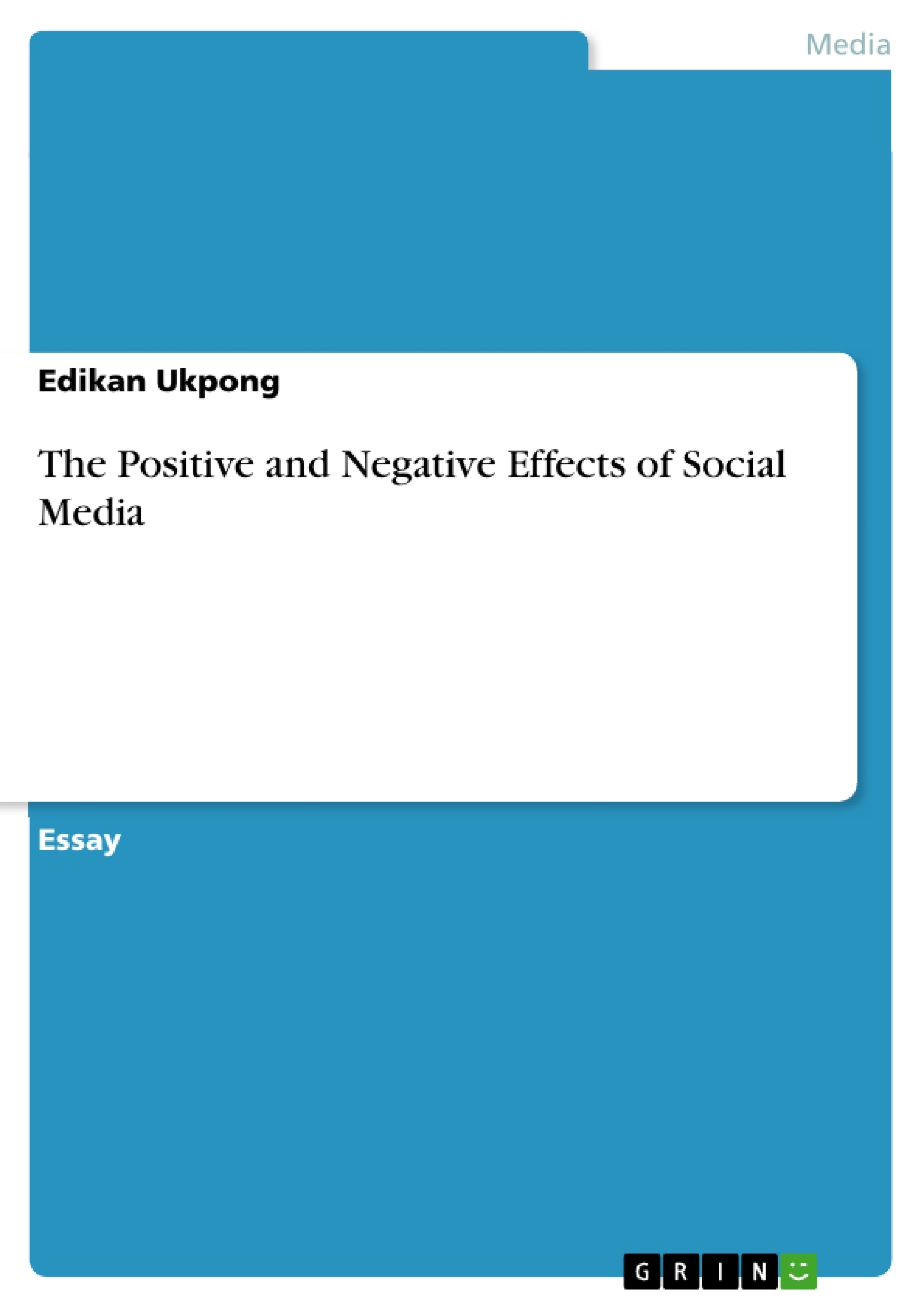The effect of Social Networks [media] like facebook, twitter, MySpace, etc is hard to ignore. Nigerian youth alongside their counterpart around the global are fast making the social media become part of their daily activities. That is why it will be of little or no wonder to see number of youths wake up and the first port of call is to update a “good morning” message on facebook or any other social network that appeals to their sense of value. This is a clear picture of the level of participation on the social network.
However, technology like two sides of a coin, bring with it both the negative and positive sides. Against all odds, Branston, G. & Stafford, R. in 2010 explains that any debate arising that the effects of the social network (or media) should be handled from two angle of view and considered from two main attitudes so as to harness the effects objectively. They suggest the following as the two attitudes to consider the effect of the social media from, the pessimistic (negative) attitude and the Optimistic/ Utopian (positive) attitude.
Table of Contents
- INTRODUCTION
- NEGATIVE EFFECTS OF SOCIAL NETWORKS (OR MEDIA)
- The Effect of the Social Network on Social Values
- The Effect of the Social Network on Students’ Academic Performance
- The Effect of Social Media on Morality
- The Effect of Social Network on Crime
- POSITIVE EFFECTS OF SOCIAL MEDIA
- CONCLUSION
Objectives and Key Themes
This paper aims to analyze the impact of social media on Nigerian youth, particularly undergraduate students, by examining both the positive and negative effects. It investigates how social media has influenced aspects of their lives, including social interactions, academic performance, morality, and exposure to crime. The study explores the challenges and opportunities presented by social media in the context of contemporary Nigerian society.
- Impact of Social Media on Social Values and Norms
- Influence of Social Media on Academic Performance
- Role of Social Media in Promoting Morality and Ethics
- Connection Between Social Media and Crime and Violence
- Potential of Social Media for Academic Excellence and Positive Social Change
Chapter Summaries
- INTRODUCTION: This section provides a general overview of the increasing prevalence of social media among Nigerian youth and introduces the concept of considering both the positive and negative effects of this technology.
- NEGATIVE EFFECTS OF SOCIAL NETWORKS (OR MEDIA): This chapter explores the detrimental impacts of social media, focusing on its influence on social values, academic performance, morality, and crime. It highlights concerns about addiction, the spread of misinformation, and the potential for social isolation.
- The Effect of the Social Network on Social Values: This section discusses how social media can erode traditional social values and norms, contributing to a decline in interpersonal relationships and a shift in social behavior.
- The Effect of the Social Network on Students’ Academic Performance: This section examines the impact of social media on students' academic success, highlighting concerns about distractions, procrastination, and the potential for academic misconduct.
- The Effect of Social Media on Morality: This section explores the role of social media in promoting or inhibiting ethical behavior among youth, particularly regarding issues of sexual content and online harassment.
- The Effect of Social Network on Crime: This section examines the potential link between social media and criminal activities, such as online fraud and the recruitment of individuals into criminal organizations.
- POSITIVE EFFECTS OF SOCIAL MEDIA: This section explores the positive effects of social media, emphasizing its potential to enhance communication, knowledge sharing, and social activism. It also discusses the role of social media in fostering social connections and promoting cultural exchange.
Keywords
This study delves into the various facets of social media's influence on Nigerian youth, focusing on key themes such as digital technology, social values, academic performance, morality, crime, and social media addiction. It examines the potential both for positive and negative impacts of social media on society, emphasizing the importance of responsible and ethical use of this powerful tool.
- Citar trabajo
- Edikan Ukpong (Autor), 2014, The Positive and Negative Effects of Social Media, Múnich, GRIN Verlag, https://www.grin.com/document/508570



